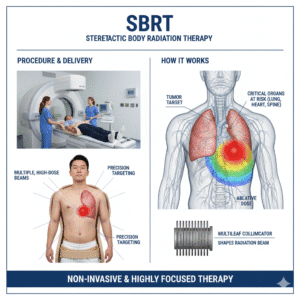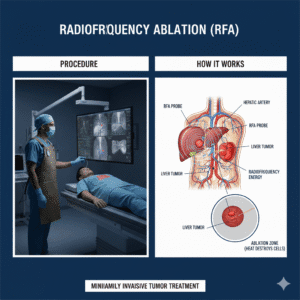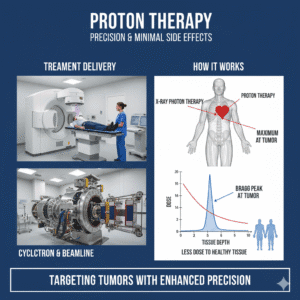
RadioFrequency Ablation (RFA)
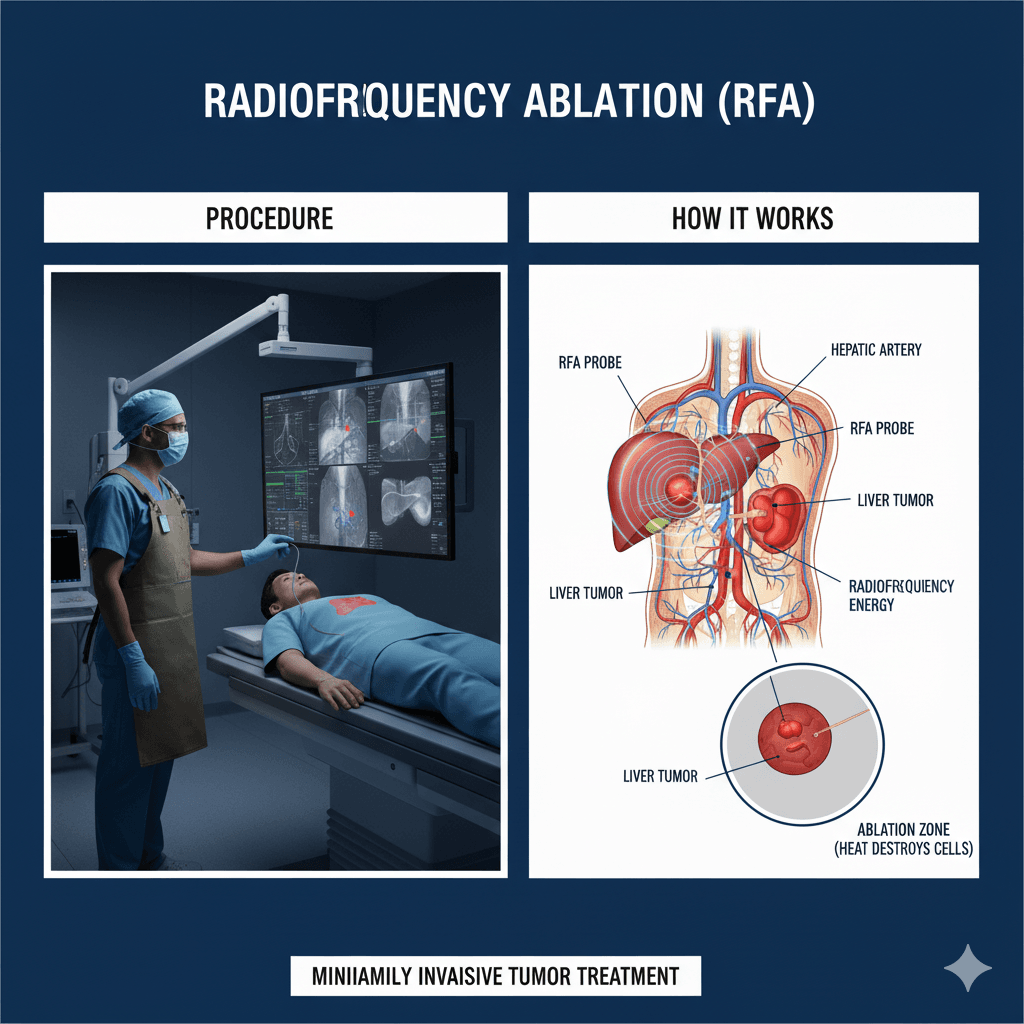
What is Radiofrequency Ablation (RFA)?
Radiofrequency Ablation (RFA) is a minimally invasive procedure used to treat certain types of cancer. It uses heat generated by radiofrequency energy to destroy cancer cells. During the procedure, a thin needle (or probe) is inserted into the tumor, and high-frequency electrical currents are passed through the probe to generate heat, which kills the cancer cells.
What types of cancer can be treated with RFA?
RFA is commonly used to treat:
Liver cancer: Both primary liver tumors (like hepatocellular carcinoma) and metastatic tumors that have spread to the liver from other parts of the body.
Lung cancer: Particularly for patients with small, early-stage tumors who are not candidates for surgery.
Kidney cancer: For small tumors or in patients who cannot undergo surgery.
Bone cancer: Especially for relieving pain caused by metastatic bone tumors.
Other cancers: RFA can also be used in some cases to treat other tumors that are difficult to remove surgically.
How does RFA work in cancer treatment?
RFA works by using heat to destroy cancer cells. The procedure is typically performed under local anesthesia with image guidance (such as ultrasound, CT, or MRI) to precisely place the needle into the tumor. Once the probe is in place, radiofrequency energy is delivered through the probe, heating the surrounding tissue and destroying the cancer cells. The heat also seals off blood vessels, which helps reduce the risk of bleeding.
When is RFA recommended for cancer treatment?
RFA is recommended in several situations, including:
Small tumors: Especially those that are less than 3 to 5 centimeters in diameter.
Inoperable tumors: When surgery is not an option due to the patient’s health, tumor location, or other factors.
Tumor recurrence: RFA can be used to treat recurrent tumors after surgery or other treatments.
Palliative care: RFA can help relieve pain and other symptoms in patients with advanced cancer, particularly when the tumor is causing discomfort or interfering with organ function.
What are the benefits of RFA?
The benefits of RFA include:
Minimally invasive: RFA is less invasive than surgery, which means shorter recovery times and less pain.
Outpatient procedure: Most RFA procedures are performed on an outpatient basis, allowing patients to go home the same day.
Targeted treatment: RFA precisely targets the tumor, minimizing damage to surrounding healthy tissue.
Repeatable: RFA can be repeated if the tumor recurs or if new tumors develop.
Palliative relief: RFA can provide significant symptom relief, improving quality of life for patients with advanced cancer.
Are there any risks or side effects associated with RFA?
While RFA is generally safe, there are some potential risks and side effects, including:
Pain or discomfort: Some pain or discomfort at the treatment site is common, but it is usually temporary and can be managed with pain medications.
Infection: As with any procedure that involves inserting a needle into the body, there is a small risk of infection.
Bleeding: There is a risk of bleeding, especially if the tumor is located near major blood vessels.
Damage to surrounding tissues: Although rare, nearby organs or tissues could be affected by the heat generated during the procedure.
Your healthcare team will discuss these risks with you and take steps to minimize them.
How do I know if RFA is the right treatment for me?
A: Whether RFA is right for you depends on several factors, including the size, location, and type of your tumor, as well as your overall health and treatment goals. Your oncologist will evaluate your specific situation and discuss whether RFA is a suitable option, either as a standalone treatment or in combination with other therapies like surgery, radiation, or chemotherapy.
What can I expect after an RFA procedure?
A: After RFA, you may experience some pain or discomfort at the treatment site, but this usually subsides within a few days. Most patients can return to normal activities within a week. Follow-up imaging is typically scheduled to assess the effectiveness of the treatment and to monitor for any signs of recurrence. Your healthcare provider will give you specific instructions on what to expect and how to care for yourself after the procedure.
If you have more questions about Radiofrequency Ablation or are considering it as a treatment option, talk to your healthcare provider. They can provide detailed information and help you understand how RFA might fit into your overall cancer treatment plan.
Related Post


CyberKnife
August 6, 2024
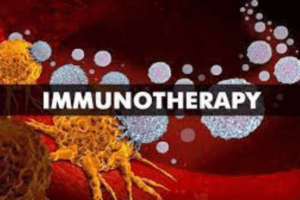
Immunotherapy
August 7, 2024
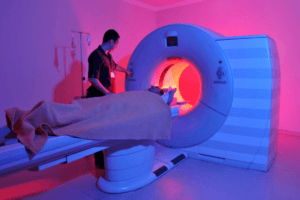
MRI Linac
August 7, 2024
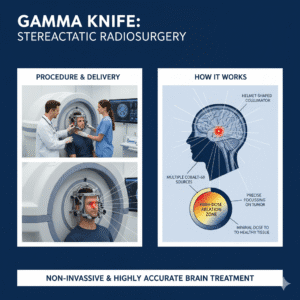
Gamma Knife
August 7, 2024
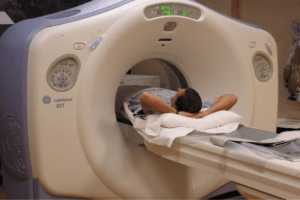
Cancer Screening
August 22, 2024
Gallery
Click below to book a clinic appointment
Ask More Questions Send Query On Email


